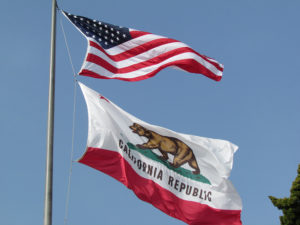This week we get the second half of a two-parter on data protection and legal compliance from HBG’s Jessica Woodbridge. Although it may not seem the most scintillating of topics, data compliance is an incredibly important topic to stay on top of, especially now when there is pending legislation that could impact our sector on the docket. If you missed Michele Borucki’s part-one article last week establishing where we are and how we got here, please take a minute to do so before forging ahead today. Then, come back with a notebook to save Jessica’s tips for making sure that your nonprofit’s data compliance checklist is up to date. ~Helen
Being a good steward of data is not just a good idea, it’s a legal necessity. Nonprofits process donor information on a regular basis, and with this comes the responsibility of understanding the information you hold as well as how to maintain it in the most secure way.
As my colleague, Michele Borucki, mentioned in last week’s Intelligent Edge article, there have been 15 states that have passed comprehensive consumer data privacy laws since 2018 and there are even more to come. There’s also federal legislation pending that could bring consumer data privacy to the federal level if passed. This all goes to say that as data grows in our world, so must we adapt and learn how to be compliant with data security and protection laws.
Here are some practical tips and best practices you can use in your shops to ensure you are protecting your constituents’ information as well as your organization:
Applicability:
- Understand your data.
- What type of data gets stored?
- Where is your data stored?
- How is your data shared?
- Who is your data shared with and how are they using it?
- Determine which, if any, consumer data privacy laws apply to your organization.
Data Minimization:
- “The principle of ‘data minimisation’ means that a data controller should limit the collection of personal information to what is directly relevant and necessary to accomplish a specified purpose.” – European Data Protection Supervisor.
- Review the APRA Data Minimization Toolkit.
- Provide training to your team on best practices for what to add in contact reports, notes, proposals, and other data points in your CRM system (such as inactivating old records/divorced persons).
Better Practices:
- Share research through secure methods.
- Review your organization’s privacy policy.
- Practice data minimization.
- Follow the stands of ethics set by Apra and the Association of Fundraising Professionals.
- Use industry-standard, publicly available resources.
- Provide training for your colleagues.
GDPR-Specific:
GDPR is based on geography, not citizenship; it pertains to any individual who has a residence (of any kind) in the EU and UK.
Create a GDPR-compliant research template:
- Do not use a photo of the prospect.
- Do not include country of birth.
- Include education if it is provided by client or found on LinkedIn, corporate bio, or donor report listing class year.
- Include business information if it is found on LinkedIn, corporate bio, or donor report listing class year.
- Only include children’s names if supplied by client or public document over the age of 16.
- Only include parent information if found in newspaper or public document.
- Only include sibling information if found in newspaper or public document.
- Do not use sources like Facebook.
- Tag GDPR research so it can be sorted and easily deleted.
- Delete research after 6 months.
Stay Informed/Resources:
- Helen Brown Group: Global Privacy, Data Protection & Due Diligence Resources
- Helen Brown Group: Intelligent Edge
- International Association of Privacy Professionals (IAPP)
- Apra Data Minimization Toolkit
- White & Case LLP Insights
- Latham & Watkins LLP Global Privacy & Security Compliance Law Blog and Newsletter
- S. Data Privacy Law Compliance Checklist
- BBB Standards for Charity Accountability
- Nonprofits Standards of Excellence
- Nonprofit Alliance
- Top Ten Tips for Compliant Fundraising Research
- Prospecting for Gold LTD: Data Protection
Does your organization have someone who tracks data privacy laws? Here are a few examples of positions that would be able to assist your organization on data compliance:
- Information technology consultants who can review your data security measures and help train your staff on implementation.
- Nonprofit compliance experts who can ensure your organization follows key regulations, properly registers to solicit and files all necessary reports by their due dates.
- Outsourced accountants who can assist in strengthening policies and procedures as well as compiling the financial data you need for effective reporting.
Protecting the rights of our clients and their constituents is of the utmost importance and is always at the forefront of our minds. By using best practices, following your organization’s legal guidelines, and generally being good stewards of data, you can ensure data compliance is being met. It takes all of us to take the necessary step to maintain data compliance and having the highest standards.





